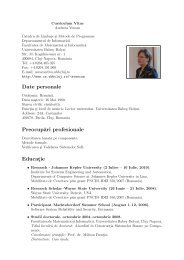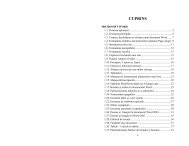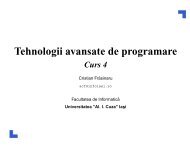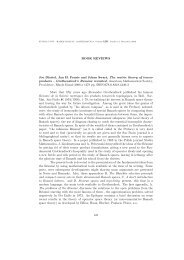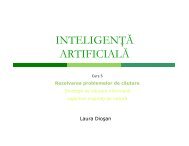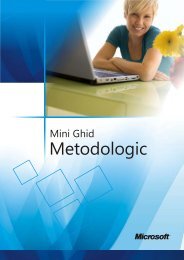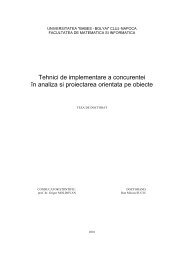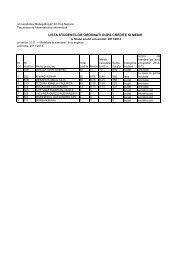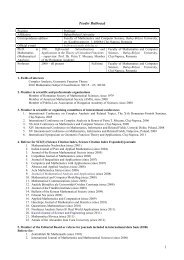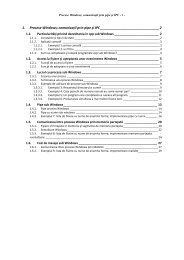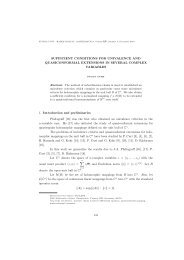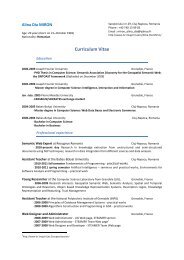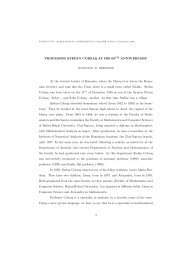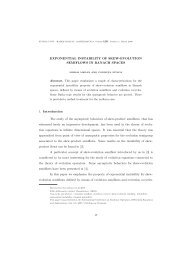CONTENTS
CONTENTS
CONTENTS
Create successful ePaper yourself
Turn your PDF publications into a flip-book with our unique Google optimized e-Paper software.
KNOWLEDGE ENGINEERING: PRINCIPLES AND TECHNIQUES<br />
Proceedings of the International Conference on Knowledge Engineering,<br />
Principles and Techniques, KEPT2009<br />
Cluj-Napoca (Romania), July 2–4, 2009, pp. 219–222<br />
A FORMAL CONCEPT ANALYSIS APPROACH TO ONTOLOGY<br />
SEARCH<br />
IOAN ALFRED LETIA (1) AND MIHAI COSTIN (2)<br />
Abstract. Finding the most suited ontology for a given domain or problem is<br />
not an easy task but through our work here we are trying to ease this endeavor<br />
by providing a semiautomated search mechanism. Semiautomated, because we<br />
need our search target to be defined by an expert. Once that target defined, by<br />
combining the processing power of MAS with FCA, we analyse the search space<br />
in order to find the most compatible ontology with the initial target.<br />
1. Motivation and Goal<br />
The main step for solving a certain problem has always been finding or creating<br />
the best tool for the job at hand, no matter what the domain was.<br />
In information science, our domain of interest, the tool in question is an ontology<br />
capable of mapping the problem domain with success. Finding the right ontology for<br />
a certain task has been even from the begining one of the theoretical strong-points<br />
of the semantic web but things are not as easy as it seems [8]. The right ontology is<br />
never easy to find and creating one is even harder.<br />
This, without any doubt, involves some sort of intelligent ontology search, a<br />
guided search that has an array of ontologies as search space. For this paper, we are<br />
using a predefined set of existing ontologies as search space. The process and the<br />
results themself can later on be applied to a larger scale, all being reduced afterwards<br />
to a scalability problem.<br />
We mentioned guided search because our process starts from a well defined domain.<br />
This domain must be described by some expert in the field using a set of<br />
concepts, concepts that will represent the search target. Our system uses this set<br />
of concepts in order to find the best suited ontology by expanding and matching it<br />
against the concepts found in the search space.<br />
2. Proposed Solution<br />
Having the initial domain defined by an expert in the field, as to direct our search,<br />
the search agents can then start trying to find the concepts that match the initial set.<br />
2000 Mathematics Subject Classification. 68T30, 94A15.<br />
Key words and phrases. Ontology, Formal Concept Analisys, Multiagent Systems, Search<br />
methods.<br />
219<br />
c○2009 Babe¸s-Bolyai University, Cluj-Napoca



